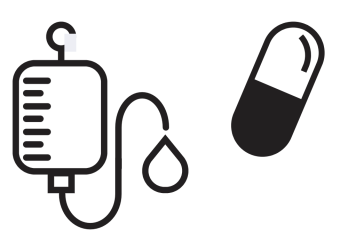
Adding The Drug Pembrolizumab to Usual Treatment for People with Advanced Pancreatic Cancer and a BRCA Gene Change
What is the purpose of this clinical trial?
This study tests treatment for pancreatic cancer that has spread. It is for people with a BRCA1 or BRCA2 gene change (mutation) that is inherited (passed down in a family).
After initial chemotherapy treatment for pancreatic cancer, doctors may recommend further treatment with the drug olaparib. Researchers want to learn if treatment with olaparib can be improved by combining it with the drug pembrolizumab.
- Olaparib targets cancer by blocking certain activity in cancer cells.
- Pembrolizumab helps the immune system find and attack cancer cells.
This trial is set up to find out:
- If combining pembrolizumab and olaparib helps delay the cancer from getting worse
- What side effects people have from treatment that uses both drugs
Why is this trial important?
Olaparib is approved by the Food and Drug Administration (FDA) to treat advanced pancreatic cancer after initial chemotherapy for people with BRCA gene mutations.
There is some evidence that combining olaparib and pembrolizumab could work better than olaparib alone. These drugs may also have fewer side effects than chemotherapy treatment options.
Who can be in this trial?
This trial is for adults, age 18 and older, with pancreatic cancer (pancreatic adenocarcinoma) that has spread to other places in the body.
This trial may be for people who:
- Have an inherited BRCA1 or BRCA2 gene mutation
- Had initial platinum-based chemotherapy that worked to control or shrink the cancer in the past 30 days
This trial is not for people who:
- Already had treatment with any of the study drugs
- Are pregnant
Talk with your doctor to learn more about who can join this study.
What treatments will I get?
A computer will randomly assign you to one of 2 study groups.
|
Group 1:
|
Group 2:
|
Your doctor will not have control over which group you will be assigned to. This helps make sure the study results are fair and reliable.
How long will I be in the trial?
You will be in the study for 3 years. Your study doctor will closely watch you for side effects and treat symptoms as needed. They will also watch how the cancer responds to the treatment. You may continue treatment until it stops working or you have side effects that are too severe. You may choose to stop treatment for any reason at any time.
If you stop getting treatment, you will have follow-up visits with the study team until 3 years after you started the study.
Are there costs? Will I get paid?
The drug pembrolizumab is provided free in this study. Check with your health care provider and insurance provider to find out what costs will and won’t be covered in the study.
You will not be paid for joining the study.
Where can I find more information about this trial?
- Talk with your health care provider
- Call the National Cancer Institute at 1-800-4-CANCER
- Go to www.ClinicalTrials.gov and search using the national clinical trial number: NCT04548752

